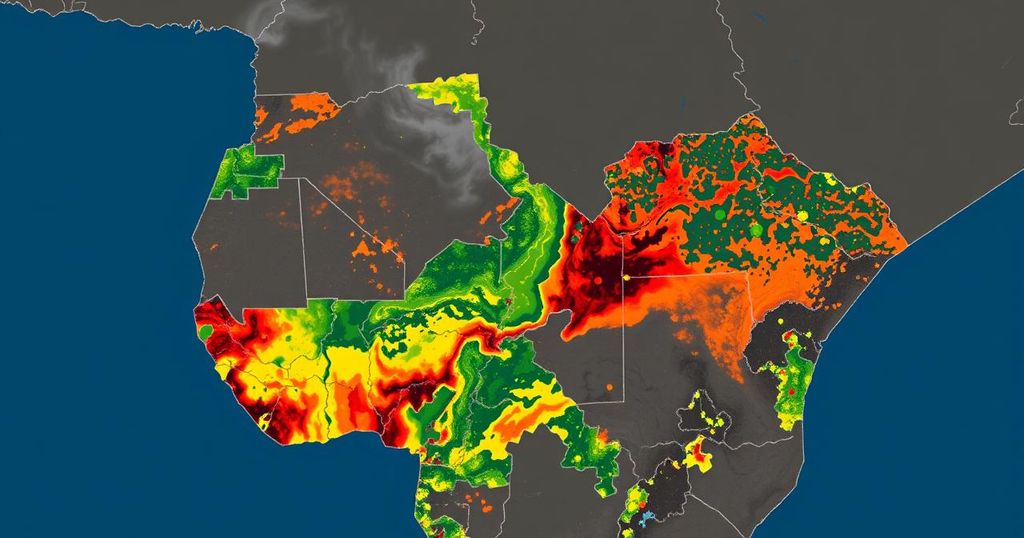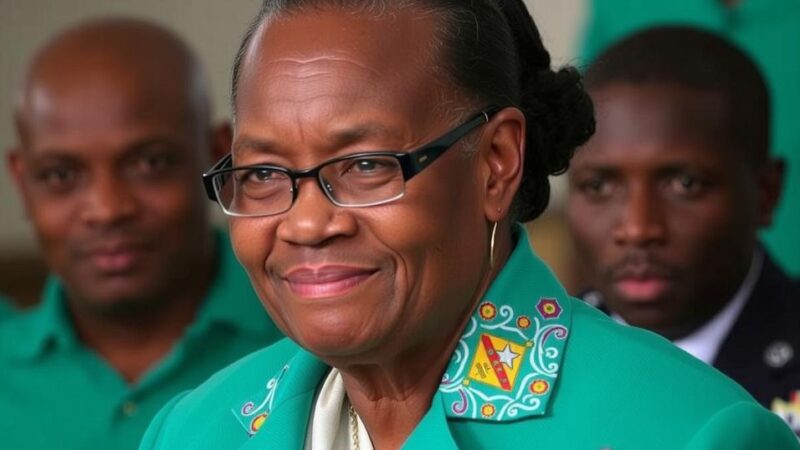The Democratic Republic of the Congo’s economy is heavily reliant on mineral resources, primarily copper and diamonds, originally controlled by foreign companies. The nationalization efforts under Mobutu led to increased state control but resulted in corruption and economic decline. Agriculture employs a majority of the population but remains hampered by inadequate infrastructure and reliance on imports. Recent reforms post-civil war have shown signs of positive growth, though challenges persist.
The Democratic Republic of the Congo (DRC) has an economy primarily reliant on mineral extraction, particularly copper and diamonds. At the time of its independence in 1960, foreign companies predominantly controlled this economic sector. The Belgian Union Minière du Haut-Katanga (UMHK) played a significant role, contributing substantially to the national revenue with assets valued around $430 million by 1965. However, following a coup in 1965 led by Mobutu, the government sought to nationalize UMHK, leading to its operations being transferred to the state-owned Générale des Carrières et des Mines (Gécamines). This transition marked the beginning of Mobutu’s efforts to consolidate control over private enterprises through a process known as “Zairianization,” which aimed at increasing state ownership while enriching Mobutu’s own fortune and fostering a patronage network. Despite initial support from international entities like the IMF and World Bank, Mobutu’s governance and widespread corruption severely weakened the nation’s productivity and economic health. Notably, the country’s economy experienced a significant downturn during the 1990s, exacerbated by the collapse of the Soviet Union and a resulting push for democratic reforms. By the late 20th century, the DRC was in dire straits. Economic indicators showed a negative growth rate and declining per capita income, while civil conflict further deepened the crisis. However, the dawn of the 21st century brought some changes as reforms aimed at liberalizing the economy were introduced, leading to the first signs of positive GDP growth in over a decade in 2002, largely attributed to greater stability post-civil war. In addition to mining, agriculture forms the backbone of the DRC’s economy, providing sustenance and employment for roughly 75% of the populace. Historically rich in agricultural possibilities, a crumbling transportation infrastructure and inadequate agricultural services have pushed many farmers back into subsistence farming, with a decline in commercial agricultural output. The DRC mainly imports staple foods and relies heavily on the smuggling of coffee as its primary agricultural export. Despite a wealth of resources, the nation faces challenges in exploiting its agricultural potential adequately due to infrastructural deficits and reliance on imported goods.
The Democratic Republic of the Congo is endowed with vast natural resources, primarily in mining. Understandably, the extractive sector has shaped much of the nation’s economic landscape since independence. Initially under foreign ownership, significant nationalizations occurred during the Mobutu era that affected economic dynamics profoundly. Moreover, agriculture remains crucial for income and sustenance, employing a significant portion of citizens but facing challenges that impede its development. Thus, the DRC’s economic situation is a complex interplay of resource management, historical governance, and agricultural practices.
In summary, the DRC’s economy has a storied history rooted in mineral extraction and agriculture. While the historical significance of companies like UMHK laid the economic foundations at independence, subsequent political maneuvers, particularly under Mobutu, transformed the landscape into one characterized by corruption and decline. Recently, there have been steps towards stabilization; nevertheless, the nation continues to wrestle with legacies of its past, particularly in sectors critical for food security and economic resilience. Economic recovery hinges on effective reforms and infrastructure improvement to unlock the DRC’s considerable potential.
Original Source: www.britannica.com







